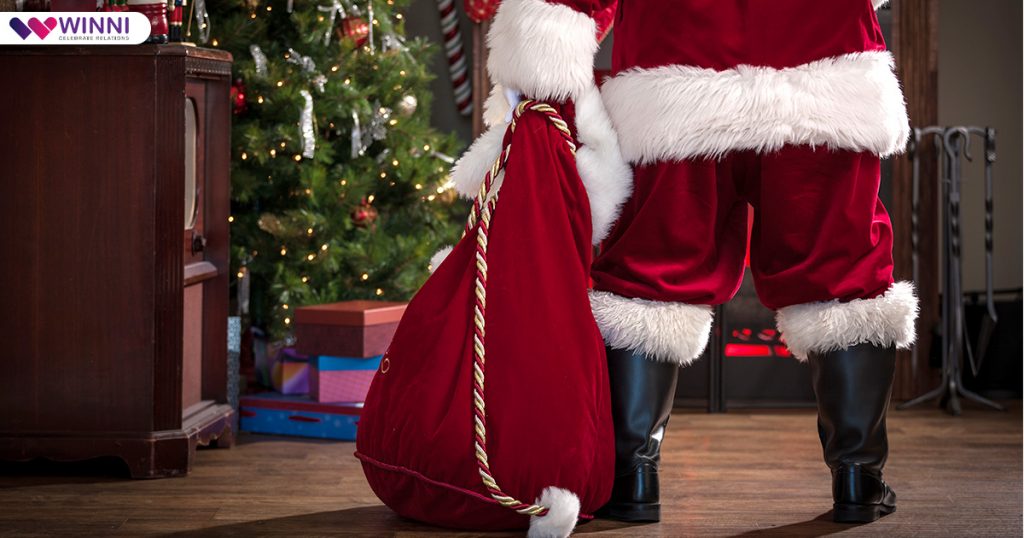The modern-day Christmas is all about Santa Claus. From school to official, every X-mas celebration includes the image of Santa. This enduring symbol of the occasion spreads joy and magic worldwide. However, society debunks many myths about this jolly old man in red as we grow old. They are simply said to be part of folklore, marketing gimmicks, or too good to be true. But what if we say that some of these myths are actually true? That they have a deep connection with the truth. Don’t believe us? Well, let’s uncover some surprising facts behind the myths about Santa Claus that are, surprisingly, true!
Santa Claus is a Real Person
Myth: Santa Claus is a fictional character
Kids say the truth! Santa Claus is a real person. He was an actual person named Saint Nicholas, a 4th-century bishop from Myra (modern-day Turkey). Saint Nicholas has a kind heart, generosity, and love for children, and most importantly, secretly delivers gifts to needy children. Over time, his story evolved into the modern-day Santa Claus we know and love and that’s where the spirit of giving comes in.

Santa Claus Has Different Names Around the World
Myth: Santa Claus is a worldwide name
Okay fine! Santa Claus has various names in different cultures. In the UK, he’s Father Christmas; in French, he’s Père Noël; in the Netherlands, Sinterklaas; and in Germany, Weihnachtsmann. Despite these variations worldwide, all these places are familiar with the idea of Santa Claus (the real name) and they all share a common theme of bringing joy and gifts during the holiday season.

The North Pole Connection Is More Than Just Fiction
Myth: Santa living at the North Pole is a modern fantasy.
While no one actually lives at the North Pole, its association with Santa captures the imagination and spirit of Christmas. The North Pole is a magical place in the remote that perfectly with Santa’s mysterious and fantastical nature. And why wouldn’t Santa live in the North Pole? After all, it’s snowy there! BTW, the idea of this old man residing in the chills originated in the 19th century.

Santa Claus’s Naughty and Nice List Has Real Historical Ties
Myth: The idea of Santa’s “naughty and nice list” is a hoax.
The concept of rewarding good behavior and punishing bad behavior dates back to the 4th century with Saint Nicholas himself. Legends say that he rewarded righteous children with gifts and left coal or switches for those who misbehaved. The list of the naughty and nice decided who will get appreciated by the year’s end. This tradition has now evolved into the modern idea of Santa’s list.

Santa’s Chimney Entry Has Folkloric Origins
Myth: Santa entering through the chimney is a fantasy.
The illusion of Santa using chimneys is a combination of folklore, urban legends, and the popular poem ‘A Visit from St. Nicholas.’ However, the legends say that Saint Nicholas used to drop gifts through chimneys to avoid being seen. Moreover, chimneys were seen as portals to the home of supernatural beings from the early centuries. This enduring image continues to enchant children and adults alike to date.

Santa Claus’s “Ho Ho Ho” Has Cultural Roots
Myth: Santa’s signature laugh is created for fun.
Santa’s legendary “Ho Ho Ho” laugh its roots in traditional portrayals of jovial characters in old literature and theater of the 19th century. The sound of the laugh reflects the cheerful and generous spirit attributed to him, embodying warmth and merriment. This jolly laugh reflects his welcoming personality and humorous nature.

Santa’s Gift-Giving Has Pagan Influence
Myth: Santa Claus delivering gifts is purely Christian.
Santa Claus delivering gifts is considered to have a Christan orginaity. However, it has roots in pagan celebrations like Yule where the festival involves exchanging gifts. This is a symbol of goodwill, prosperity, and foster relationships. Christians later adopted these customs, incorporating them into the story of Saint Nicholas and eventually Santa Claus.

The blend of history, folklore, and cultural evolution makes Santa Claus even more fascinating. So, as you hang your stockings and prepare for his visit, remember—Santa’s story is a beautiful mix of myth and truth!




